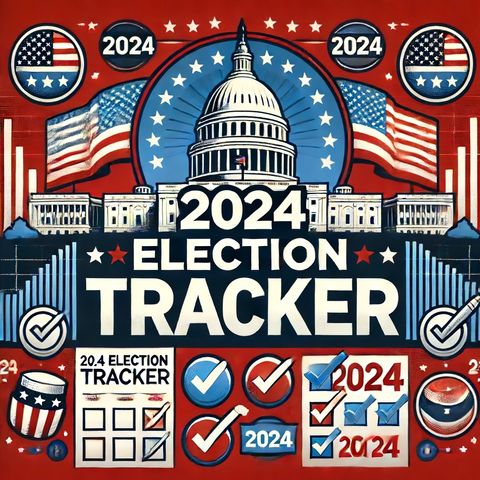"Shifting Tides in 2024: Key Figures, Economic Factors, and Local Engagement Shape the Upcoming Presidential Race"

Sign up for free
Listen to this episode and many more. Enjoy the best podcasts on Spreaker!
Download and listen anywhere
Download your favorite episodes and enjoy them, wherever you are! Sign up or log in now to access offline listening.
Description
As the 2024 presidential election approaches, the political landscape is marked by significant developments involving the key figures expected to shape the race. President Joe Biden, facing health challenges and...
show moreThis period of political uncertainty coincides with President Biden contracting Covid, an event that takes him off the campaign trail temporarily but also presents a broader symbolic significance in terms of campaign readiness and the ability to engage actively with voters. Such interruptions also contribute to an atmosphere of speculation and recalibration among Democrats as they consider the implications of potentially transitioning to a new standard-bearer in a highly polarized and contentious electoral environment.
Biden's decision, whether to run or not, holds substantial implications not only for his party but also for the general election dynamics where Trump, having secured the GOP nomination, is a formidable opponent with a deeply established base. This divergence in candidate continuity versus potential change could define the themes and strategies of both parties heading into 2028.
Beyond individual candidacies, broader economic indicators and public sentiment are playing an increasingly crucial role in shaping electoral outcomes. Parker Floyd underscores the importance of consumer sentiment alongside traditional economic metrics like GDP, inflation, and employment rates in predicting election winners. As detailed, while these economic indicators provide a snapshot of the nation's financial health, the subjective feelings of consumers towards their financial conditions often translate more directly into voting behavior. Such sentiments are fluid and can be influenced by a multitude of factors including political rhetoric, policy outcomes, and global economic conditions.
Moreover, local governance is also spotlighted as critical races unfold, such as in The Woodlands, Texas, where filing for seats on the Township Board of Directors is set to begin. These elections, though on a smaller scale, are crucial in fostering civic engagement and affecting change at the community level, serving as the foundational elements of the nation’s democratic process.
As these various threads converge—national leadership decisions, economic and consumer sentiment, and local elections—the 2024 election is shaping up to be a complex narrative of leadership transitions, economic uncertainty, and the persistent undercurrents of local political engagement. How these factors interplay will significantly impact the strategies adopted by candidates and their parties, voter turnout, and ultimately, the results of what promises to be a highly consequential electoral cycle.
Information
| Author | QP-4 |
| Organization | William Corbin |
| Website | - |
| Tags |
Copyright 2024 - Spreaker Inc. an iHeartMedia Company
